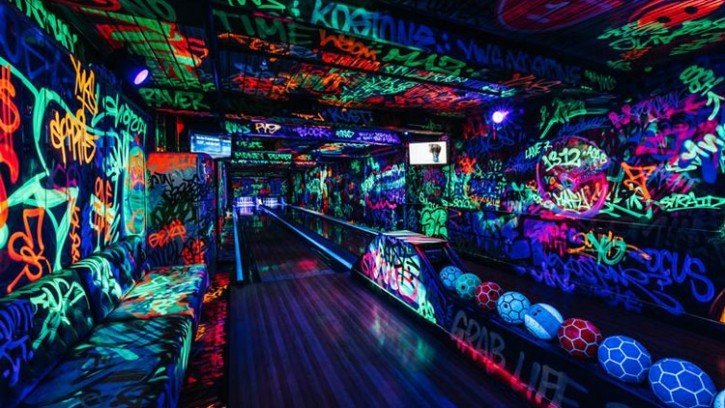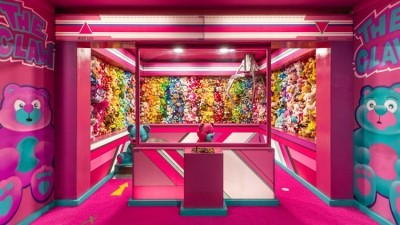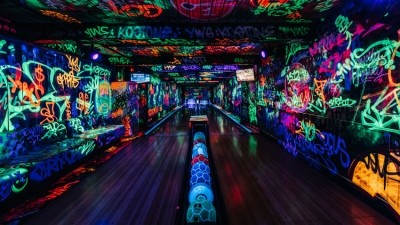Competitive socialising venues growing at ‘unparalleled levels’

Encompassing a mix of experiential leisure activities, such as golf, stop the clock (STC), bowling, and virtual reality (VR), as well as ‘solo’ and ‘combo’ competitive socialising, some sub-sectors have accelerated at a faster rate than others.
Brands offering a 'more blended offering' such as of Boom Battle Bar and Lane7 (pictured) are contributing to the 455% uptick in ‘combo’ attractions in the last five years, according to research by Savills.
Meanwhile, ‘solo’ competitive socialising offering one singular activity such as darts, axe-throwing, and ping-pong, has grown by 162%.
Mini golf, a more established sector, has also seen an increase of 96%. In comparison, bowling, which already has a big presence in the market, has increased by 10%, with its biggest growth seen largely within the ‘combo’ rather than ‘solo’ market.
Standalone VR is the only sector to have declined by 5% – unlike its counterparts, it is far more likely to be incorporated into blended rather than standalone concepts and therefore remains an important growth area for new concepts.
Tom Whittington, director in commercial research at Savills, suggests that the key to future-proofing the sector is either bringing multiple concepts together under one roof as a cluster of brands, via a ‘combo’ style operator or having 'a clear brand identity backed up with a high-quality offer or IP'.
Regionally, Birmingham experienced the fastest growth in the sector over the past five years, with a net change of 14 units over the period, and more planned for the Bullring and Grand Central estates in 2024.
This is closely followed by Liverpool at nine units and Leicester at six units. London comparatively has seen a smaller proportionate rise in openings at five units, which Savills notes is likely due to a lack of affordable supply and the city being a more mature market for the sector.
Carlene Hughes, head of UK restaurants and leisure at Savills, predicts that the market will continue to grow with new concepts emerging.
”Our research suggests that there will be a number of football-based simulation activities with Ballerz, a concept backed by ex-professional footballers, due to open in Bluewater next year.
”There is also likely going to be more food and beverage brands thinking carefully about how to incorporate immersive entertainment, with concepts from BoxPark to Butlins including competitive socialising in their venues. ”We expect that our world-class UK brands will also begin looking internationally to grow their business, with the likes of F1 Arcade opening in Boston next year.”



















